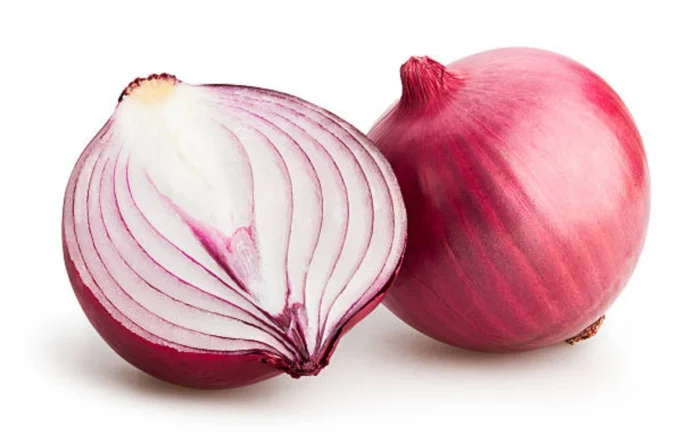Glycemic Index of Onions
Onions are a flavorful vegetable commonly used in a variety of dishes, and they have a very low glycemic index (GI) of 10–15, placing them in the low-GI category. This low GI means that onions cause only a gradual increase in blood sugar, making them a suitable choice for people managing diabetes or anyone aiming to keep blood sugar levels stable.
Glycemic Load of Onions
The glycemic load (GL) of onions is also low, typically around 1-2 per 100 grams. Due to their low carbohydrate content, onions have minimal impact on blood glucose levels, even when consumed in larger portions.
Onion Nutritional Profile (per 100 grams, raw)
Onions are low in calories but contain a variety of essential vitamins, minerals, and antioxidants. Here’s a breakdown of their nutritional content per 100 grams:
| Nutrient | Amount per 100g | % Daily Value (DV) |
|---|---|---|
| Calories | 40 kcal | – |
| Carbohydrates | 9.3 g | – |
| Sugars | 4.2 g | – |
| Fiber | 1.7 g | 7% |
| Protein | 1.1 g | 2% |
| Fat | 0.1 g | – |
| Vitamin C | 7.4 mg | 9% |
| Vitamin B6 | 0.1 mg | 5% |
| Folate | 19 µg | 5% |
| Potassium | 146 mg | 4% |
| Calcium | 23 mg | 2% |
| Magnesium | 10 mg | 2% |
Onions are an excellent source of antioxidants and contain beneficial plant compounds like quercetin that support heart health and have anti-inflammatory properties. They’re also a good source of vitamin C and fiber, contributing to immune function and digestive health.
In summary, onions have a low glycemic index and glycemic load, making them a diabetes-friendly and nutritious choice for balanced meals.






